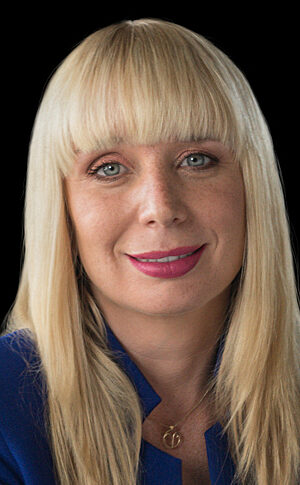Kristina Cavit has spent almost a decade working with marginalised communities facing stress and trauma in New Zealand and around the world.
After Kristina experienced Mindfulness as profoundly effective in overcoming challenges in her own life and the lives of others, she founded The Kindness Institute, a not-for-profit organisation hellbent on creating a world where everyone has the tools to manage stress and live meaningful lives.
We asked Kristina to provide us with some tips to help improve and prioritise wellbeing in the workplace. Check it out below!
What does Mental Health Awareness Week mean to you and how do you keep your mental health on track?
I celebrate Mental Health Awareness month - from the end of September throughout October! This year, MHAW means reconnecting with people and places I love. And noticing how much energy I have when I take a break from being hard on myself.
To me, Mindfulness is the ability to notice what is happening in the present moment, with a sense of kindness, curiosity and without judgement. Practicing Mindfulness helps me to let go of worries of the past or the future and to find a little more calm. I also like to remind myself that we all have mental health, and we feel better when we take care of it. It’s not weak to speak up about your hauora. Infact, the most talented and successful people I know are those who have the ability to take care of their minds and emotions. Not taking care of our mental health is the most damaging thing we can do. When we learn to be kind to ourselves, this has a ripple effect on all of those around us. When I feel out of balance, I ask myself - what if it all works out?
When I feel out of balance, I ask myself - what if it all works out?
What sparked your passion for teaching wellbeing practices and becoming a mindfulness expert?
I was involved in the Haiti earthquake relief effort in 2010 and to deal with the crisis, I started yoga and meditation. As a Mindfulness cynic, I hated meditation when I first tried it. But after a while, I started to feel a sense of calm. I think it saved me. I then went on to study from Mindfulness leaders.
I started The Kindness Institute out of a need from the community - the rangatahi (youth) I worked with were struggling, and to my surprise they loved practicing mindfulness and talking about mental health. There was so much need and mental health wasn’t being taught. We teach all sorts of subjects in school but are missing out on the most important lesson - how to deal with life when things get tough. We need to break down our toxic “toughen up” culture by learning to take care of our challenging emotions. We need to change the conversation around mental health and teach our people that their mental health is more important than their success.
We need to break down our toxic “toughen up” culture by learning to take care of our challenging emotions.
What are some benefits of utilising mindfulness to improve wellbeing within the workplace?
In my experience, Mindfulness can help people to find more calm, clarity, creativity and connection in the workplace. Mindfulness can teach us to be more at ease with our mind. The more we practice, the easier it gets to calm the racing mind and to be present with whatever we’re doing. Research shows that meditation can help us feel less stressed, sleep better, increase our ability to focus and even improve our relationships!
Our clients are so busy! Is there a mindfulness tool that workplaces can do right now to reduce stress?
Here's two!
- Take 5 - notice 5 things you can see, 4 things you can hear, 3 things you can feel, 2 things you can smell and 1 thing you can taste.
- Just taking one deep full breath has the power to change your whole day. Start and end your day with 5 mindful breaths. Taking 5 mindful breaths before a meeting can change everything.
I wish people knew that you can’t be bad at meditating.
August was Mindfulness Month and you & your team at The Kindness Institute partnered with The Mental Health Foundation to raise awareness and support people with key mindfulness tools. What is some advice you can give someone who is wanting to practice mindfulness for the first time?
I meet a lot of people who say that they are bad at meditating because their mind is too busy. I wish people knew that you can’t be bad at meditating. It’s normal to have a busy mind – humans have over 60,000 thoughts a day. Even monks get distracted by thoughts. When this happens, simply notice that your mind has wandered and return to the practice or the breath. This trains the mind to focus more easily. With time, you’ll notice you can meditate for longer periods without being distracted. You’re not trying to switch off your thoughts, you’re learning to observe them without judgement.

